ADVERTISEMENT
police - Haiti Observer Blog
police, Haiti Observer Blog. Read the following articles about police
Haitian National Police Judicial Division
The Haitian National Police (HNP) retains a detective division, the Central Directorate of the Judicial Police (DCPJ). One of HNP's special units, it operates six offices over 30 sections in the country. Headquartered in Clercine, all its services--excluding Police Science and Technology Center--are under one roof.
The DCPJ's purpose is to secure the crime scene, assemble forensic evidence, and look for suspects to bring to trial. Its most important function is to infiltrate organized crime syndicates. The Judicial Police works as well in fighting international crime syndicates in alliance with Interpol, the international police.
Due to the varied kinds of crimes and criminals, who commit them, the Judicial Police adapts their techniques and processes to capture, incarcerate, and bring them to trial.
Haiti National Police Force not Strong Enough to Protect and Enforce
The Haitian National Police (HNP) is an 8,546-member force. Since the Haitian Army was disbanded, it has been the HNP's responsibility to provide security for the country. This number, though, is uncertain, because according to the HNP, the police force has only 5, 892 enforcement officers. The U.S. places the number even lower, somewhere between 3,500 to 4,500.
While Haiti's population of about 10 million; It is being protected by anywhere from 3,500 to 8,546 officers. No one is certain what the strength of Haiti National Police's force is, but even at the highest estimate, it falls well below an adequate number of officers needed to protect Haiti.
Haiti National Police History
Under Jean-Claude Duvalier, the Haitian National Police (HNP) existed as a two-operation department, under the Haitian Army: the Port-au-Prince Police and Rural Security Companies. Post-Duvalier, the 1987 Constitution proposed forming an independent police cadre and police academy, but political turmoil barred this from happening.
After Duvalier, only Port-au-Prince could claim the semblance of a police department. It ran under the control of the Haitian Army. Its capabilities were severely limited, but it bore responsibility for drug and border patrol enforcement, and other criminal matters. Rural Security was not an actual police force. Comprised of soldiers stationed at small posts outside major towns and cities, lower-level military officers acted as police heads.
Drug Trafficking business And National Police In Haiti
Drug trafficking is a serious issue in Haiti as the country has been a transit point for drug dealers and smugglers. Drug shipments from South America to the United States, Europe, Canada and Caribbean nations usually pass through Haiti and this is why the police force are always on alert. According to reports, drug shipments are made by both sea and air. Even though local production of marijuana is moderate in the country, drug trafficking remains a serious case.
The national police are exerting efforts to clamp down on drug trafficking. Director General Mario Andresol said that since the devastating earthquake in 2010, crimes in Haiti, including drug shipments, are on the rise. He added that the national police are planning to increase their number from 10,000 to 15,000 in three years.
Elite in Haiti Used National police as Private Army
A secret US Embassy cable has reported that members of the Haitian elite used the Haitian National Police as private army to drive the 2004 coup d'etat.
Business organizations and the few elite group purchased arms and ammunitions and gave them to police forces, equipping them for the February 29, 2004 coup that removed President Jean-Bertrand Aristide from power.
The overthrowing of Artiste was accompanied by several other changes. The ruling party, Fanmi Lavalas was repressed and a US-supported governance was installed. A 9000 UN militia known as UN Stabilization Mission in Haiti (MINUSTAH) was put in place.
Haitian National Police Protection Response and Living Conditions in Haiti Make Visiting Risky
Visitors contemplating a visit to Haiti should be forewarned about the pitfalls that accompany being in the country. Security in Haiti is uncertain. The Haitian National Police (HNP) is a compromised law enforcement agency. They have been subjected to internal militant politics, which have caused them to mistreat detainees, violating human rights laws. Under-staffed, under-paid, and awash with corruption, some of its members are suspected to be gang-affiliated.
Haiti National Police is supported by the UN stabilization peacekeeping police, who keep barely acceptable security levels in Haiti in place. Because the HNP lacks the capacity--even with an adjunct policing body in the UN forces--to investigate every crime committed towards visitors to the island, they remain largely ineffective. The HNP warns travelers landing at Port-au-Prince Airport to not use public transit, but to call someone ahead of time to come and pick them up.
Haitian National Police Protection of the Population May Depend on Better Wages
The Haitian National Police (HNP) has several strikes against their effectiveness as a policing agency. They are known to be among the world's most poorly-performing police forces. Under-recruited, 63 officers protect 100,000 citizens, less than 25% of the Caribbean's protection average of 283 officers per 100,000.
Further weakening their functioning as a policing body is that a considerable number of HNP officers are thought to be participating in violent-crime gang activity, as well as a series of kidnappings. Both the HNP and human rights advocates verify that some members of HNP are operating outside the law.
Haiti's elite Used National police as Private Army
A secret US Embassy cable has reported that members of the Haitian elite used the Haitian National Police as private army to drive the 2004 coup d'etat.
Business organizations and the few elite group purchased arms and ammunitions and gave them to police forces, equipping them for the February 29, 2004 coup that removed President Jean-Bertrand Aristide from power.
The overthrowing of Artiste was accompanied by several other changes. The ruling party, Fanmi Lavalas was repressed and a US-supported governance was installed. A 9000 UN militia known as UN Stabilization Mission in Haiti (MINUSTAH) was put in place.
Thousands of People in Cap-Haitian in the Street against Michel Martelly
On Friday, September 21, 2012, thousands of people took to streets in the second city of Haiti, Cap-Haitian, to demonstrate against Martelly - Lamothe government. Barricades made of tires, stones and garbage were erected in several areas of the city. Traffic was difficult in many areas and in the neighborhood of La Fossettete and Cite Lescot where the tires were burning, impossible.
The people demonstrating were throwing slogans to show their dissatisfaction with the current policy of the government. They chanted against recent increase in food price and government corruption. Some of the people in the crowd were asking for Martelly to leave the government.
Change of guard at Haiti National Police, Godson Orelus to replace Mario Andresol
The long awaited change at the National Police of Haiti has been made. Mario Andrésol has been replaced by Godson Orelius as the new Director General of the National Police. Hold on, this is until the approval of the Senate. This is no longer a rumor and this nomination confirmed that there was a conflict between Martelly Government and Mario Andrésol being the Director General of the National Police.
Nou Fe Sa Nou Vle Nan Ti Payi Sa !
What do we know about Godson Orelius?
Our objective is to share with you news and information about Haiti and the people of Haiti. Traditions, habits and the way we were or grew are alive in this site. We highly recommend that you Subscribe to our Newsletter and also share with us some of the things that are memorable and made us unique people.

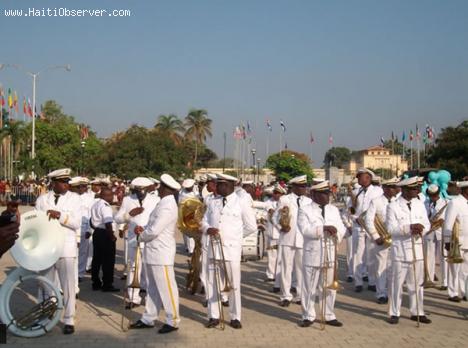
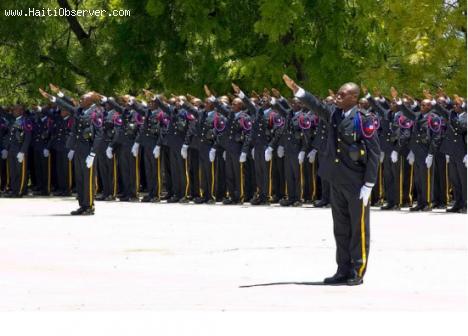
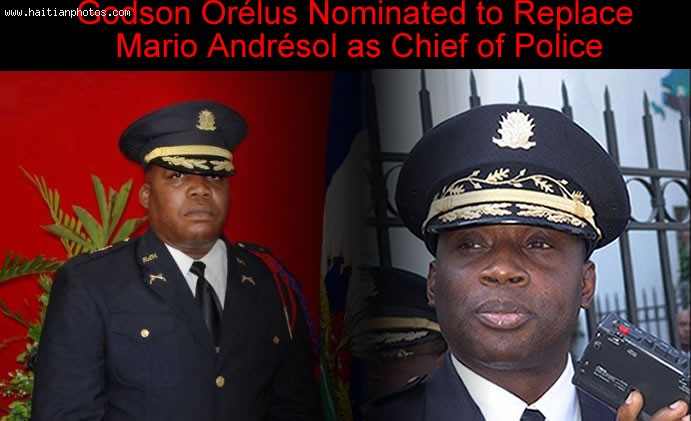
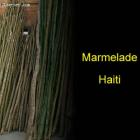 Marmelade, Haiti
Marmelade, Haiti 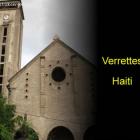 Verrettes, Haiti
Verrettes, Haiti 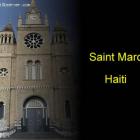 Saint Marc, Haiti
Saint Marc, Haiti  Life After Death
Life After Death  Haiti tech Summit
Haiti tech Summit